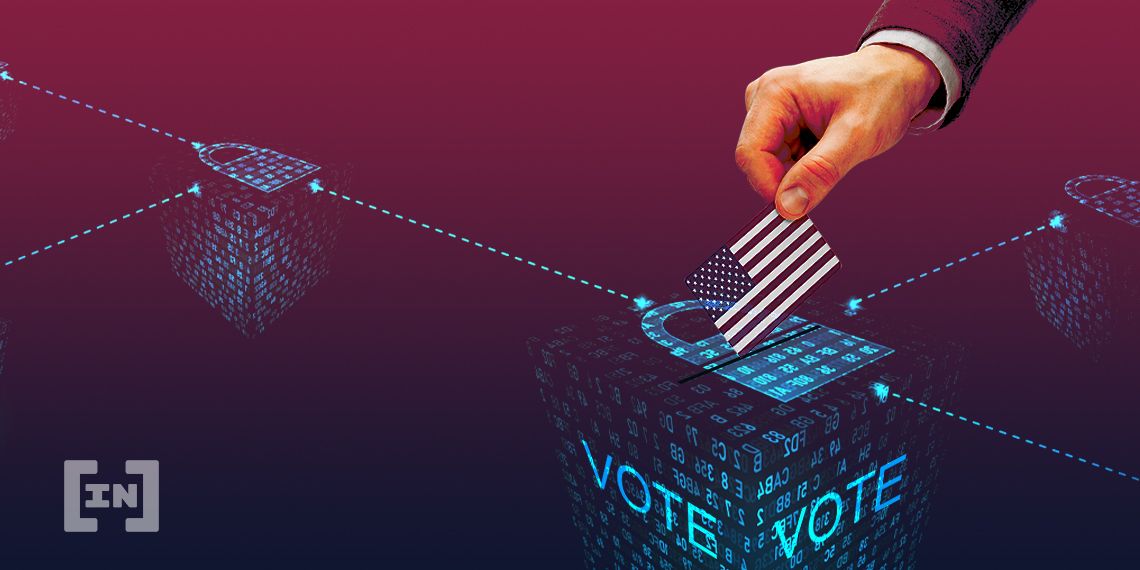Iowa’s Caucus Disaster Proves We Need Blockchain Voting
Luckily, nobody has to trust anyone for this to work properly. We can create trustless systems that ensure transparency while also making the results accessible and unchangeable. The hidden solution is arguably blockchain technology. This is the exact conclusion drawn by the CEO of Chainstone Labs, Bruce Fenton (@brucefenton), recently.How would blockchain help fix the caucus process? For one, there would be no way entities could tamper with voter rolls. Moreover, it would allow for a clear count which could be viewed by everyone in real-time without requiring trust.I used to think blockchain voting was a dumb idea, then I heard from some companies working on this & saw potential use cases and advantages
— Bruce Fenton (@brucefenton) February 4, 2020
It’s not perfect — but this is the system it’s replacing: someone looking at a coin, turning it over & calling it
pic.twitter.com/nQHNkTfhPG
 It’s an idea that’s been repeatedly covered by BeInCrypto after local elections in Australia and elsewhere tried out blockchain voting for themselves. Presidential candidate Andrew Yang is thus far the only one who has outright committed himself to the idea, writing that “Americans should be able to vote via their mobile device, with verification done via blockchain.”
However, implementing blockchain-based voting would have to be rolled out in an incremental process. Given that Iowa’s primary has been so steeped in controversy the last two go-arounds, it may be a suitable place to pilot the technology.
It’s an idea that’s been repeatedly covered by BeInCrypto after local elections in Australia and elsewhere tried out blockchain voting for themselves. Presidential candidate Andrew Yang is thus far the only one who has outright committed himself to the idea, writing that “Americans should be able to vote via their mobile device, with verification done via blockchain.”
However, implementing blockchain-based voting would have to be rolled out in an incremental process. Given that Iowa’s primary has been so steeped in controversy the last two go-arounds, it may be a suitable place to pilot the technology.
Blockchain Can’t Solve It All Though
The issues with Iowa’s caucus, however, goes deeper than just fixing it with blockchain. Despite Bernie Sanders being in the lead by popular vote, Pete Buttigieg still leads with delegates. There is something fundamentally broken when a candidate with less of the vote can amass more delegates based on procedural gimmicks.There have been debates over whether the entire caucus system is broken. Perhaps it is time for Iowa to have a regular primary. However, one thing seems certain — the entire process clearly needs transparency whether through blockchain voting or another way.Iowa Caucus only has 71% reporting, but they try and make it look like Pete Buttigieg is in the lead.
— Raider ₿ 🛰 (@TruthRaiderHQ) February 5, 2020
Bernie Sanders is actually in the lead by a long shot.#IowaCluster #IowaCluster #IowaDems #IowaDemCaucaus pic.twitter.com/w6N1CNLdMG
Disclaimer
In adherence to the Trust Project guidelines, BeInCrypto is committed to unbiased, transparent reporting. This news article aims to provide accurate, timely information. However, readers are advised to verify facts independently and consult with a professional before making any decisions based on this content. Please note that our Terms and Conditions, Privacy Policy, and Disclaimers have been updated.


